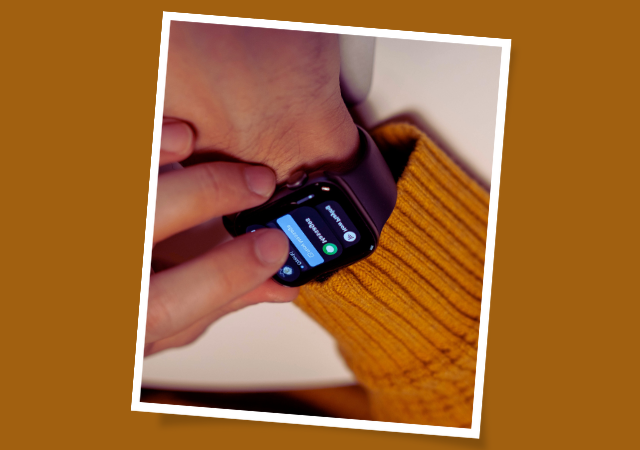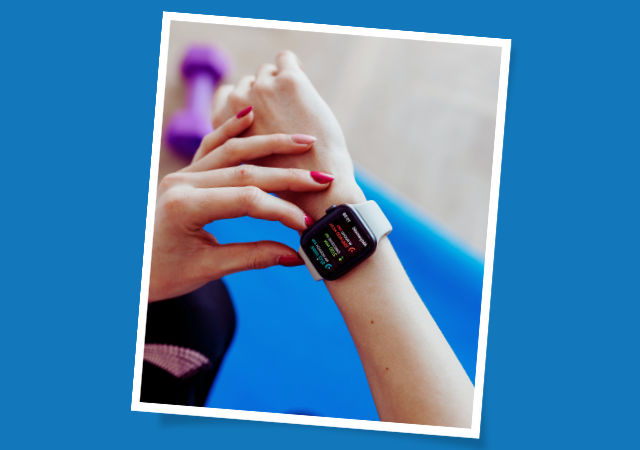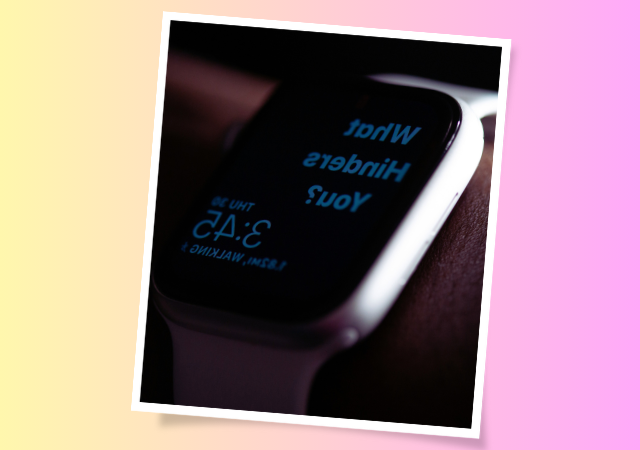How Smartwatches Are Revolutionizing Fitness Tracking and Health Monitoring
Introduction
In recent years, the fusion of technology and wellness has reached new heights, with smartwatches emerging as the vanguard in transforming how we approach fitness tracking and health monitoring. These sleek, wearable devices have evolved far beyond their initial timekeeping functions, becoming indispensable companions for individuals seeking a holistic understanding of their well-being. This article delves into the profound impact of smartwatches on the landscape of health and fitness, exploring advanced tracking features such as heart rate monitoring, GPS integration, and sleep tracking.
Beyond conventional fitness metrics, we investigate how smartwatches now play a pivotal role in health monitoring, offering insights into blood oxygen levels, ECG readings, and more. As we navigate the intricate synergy between technology and personal well-being, this exploration underscores the significance of smartwatches in fostering a proactive and informed approach to health in our fast-paced, modern lifestyles.
How Smartwatches Are Revolutionizing Fitness Tracking and Health Monitoring
The Rise of Smartwatches in Fitness Tracking

Smartwatches have witnessed an astronomical rise in popularity, transforming from mere extensions of smartphones to sophisticated health and fitness companions. The global smartwatch market has experienced exponential growth, with manufacturers continually pushing the boundaries of innovation to meet the burgeoning demand for wearable technology.
Compared to traditional fitness tracking methods, smartwatches offer a comprehensive and real-time approach to monitoring physical activity. With built-in sensors, these devices capture a wealth of data that goes beyond simple step counting. The integration of accelerometers, gyroscopes, and heart rate monitors enables users to gain deeper insights into their exercise routines, providing a more accurate representation of their overall physical activity.
Advanced Fitness Tracking Features

One of the key aspects that set smartwatches apart in the realm of fitness tracking is their ability to monitor heart rate in real-time. The importance of this feature extends beyond the immediate context of a workout. Users can now analyze how their heart rate fluctuates throughout the day, allowing for a more nuanced understanding of their cardiovascular health. This real-time data not only enhances the accuracy of calorie burn estimates during exercise but also empowers individuals to tailor their fitness routines based on personalized heart rate zones.
The integration of GPS technology in smartwatches has revolutionized outdoor activities. Whether running, cycling, or hiking, users can track their routes with unprecedented accuracy. This not only provides valuable data on distance and pace but also enables the creation of detailed maps showcasing the intricacies of one’s fitness journey.
Sleep tracking is another notable feature that underscores the holistic approach of smartwatches to well-being. By monitoring sleep patterns, users can gain insights into the quality and duration of their sleep, leading to actionable steps for improvement. With an understanding of sleep cycles, individuals can make lifestyle adjustments to optimize their rest, fostering overall physical and mental wellness.
Health Monitoring Beyond Fitness

Smartwatches have transcended their initial role as fitness trackers and ventured into the realm of comprehensive health monitoring. The inclusion of blood oxygen (SpO2) monitoring has become a standard feature in many devices. This capability is particularly crucial for assessing respiratory health and can provide early indications of potential health issues.
ECG (Electrocardiogram) and heart rhythm monitoring represent groundbreaking features that contribute to early detection of heart-related conditions. Smartwatches equipped with these sensors can analyze the electrical activity of the heart, offering insights into irregularities that might require medical attention. Some devices even incorporate emergency alert systems, notifying users of potential cardiac issues and prompting them to seek medical assistance.
Integration with Health Apps and Platforms

The synergy between smartwatches and health apps has transformed how individuals manage and interpret their well-being data. These devices are designed to seamlessly sync with popular health and fitness apps, creating a unified ecosystem that centralizes user data. This integration not only streamlines the user experience but also facilitates a more comprehensive analysis of health metrics.
Compatibility with smartphones and other devices further enhances the accessibility of health information. The ability to review data on larger screens allows for a more detailed analysis, empowering users to make informed decisions about their fitness and health journeys. Cloud-based platforms play a pivotal role in this integration, offering secure storage and easy accessibility to health data across multiple devices.
User Experience and Motivation
Smartwatches have introduced a gamified approach to fitness, transforming mundane activities into engaging challenges. Users can set personalized goals, participate in virtual competitions, and earn rewards for achieving milestones. This gamification not only adds an element of fun to fitness routines but also serves as a powerful motivator, encouraging consistent physical activity.
Customization and personalization are key elements in the user experience of smartwatches. Tailoring features to individual preferences and needs ensures that users receive relevant insights and recommendations. Adaptive goal-setting, which takes into account a user’s progress over time, promotes gradual improvement and fosters a sense of achievement.
Challenges and Concerns

As with any technological advancement, the integration of smartwatches into health monitoring comes with its set of challenges. Data privacy and security are paramount concerns, especially given the sensitive nature of health information. Manufacturers must implement robust measures to safeguard user data and address growing apprehensions about potential misuse.
The accuracy of health metrics is another critical consideration. While smartwatches have made significant strides in sensor technology, there is an ongoing need for continuous improvement to ensure the reliability of data. Addressing these challenges is crucial to fostering trust among users and healthcare professionals who increasingly rely on smartwatch data for informed decision-making.
Future Trends in Smartwatch Health Monitoring
Looking ahead, the future of smartwatches in health monitoring holds exciting possibilities. The incorporation of artificial intelligence (AI) and machine learning is poised to take personalized health insights to the next level. Predictive health analytics, driven by sophisticated algorithms, could offer users proactive recommendations based on their unique health profiles.
Advancements in sensor technology will likely focus on miniaturization and increased precision. Smaller, more powerful sensors will allow for the integration of new health monitoring features, expanding the capabilities of smartwatches beyond current limitations. This could include the introduction of sensors capable of monitoring additional physiological parameters, further enriching the depth of health data collected.
Conclusion (How Smartwatches Are Revolutionizing Fitness Tracking and Health Monitoring)
In conclusion, smartwatches have emerged as transformative instruments in reshaping how we approach fitness tracking and health monitoring. The amalgamation of advanced fitness tracking features, comprehensive health monitoring capabilities, seamless integration with health apps, and a user-centric design has propelled smartwatches to the forefront of the digital health revolution.
As we navigate the evolving landscape of technology and well-being, smartwatches offer not only a window into our daily activities but also a gateway to proactive health management. With ongoing improvements in accuracy, security, and the integration of futuristic technologies, smartwatches are poised to play an increasingly pivotal role in empowering individuals to take charge of their health and well-being in the years to come. The journey towards a healthier future is, quite literally, at our fingertips.

My name is Rohit Vagh and I’m a content writer specializing in fashion and lifestyle. I have three years of experience in this field and have written various articles. My writing style is creative and engaging, and I strive to create content that resonates with my readers. I have a deep passion for fashion and am constantly researching the latest trends and styles to make sure my readers are up to date. I’m excited to continue my career in blogging, and I’m always looking for new opportunities in the fashion and lifestyle space.





